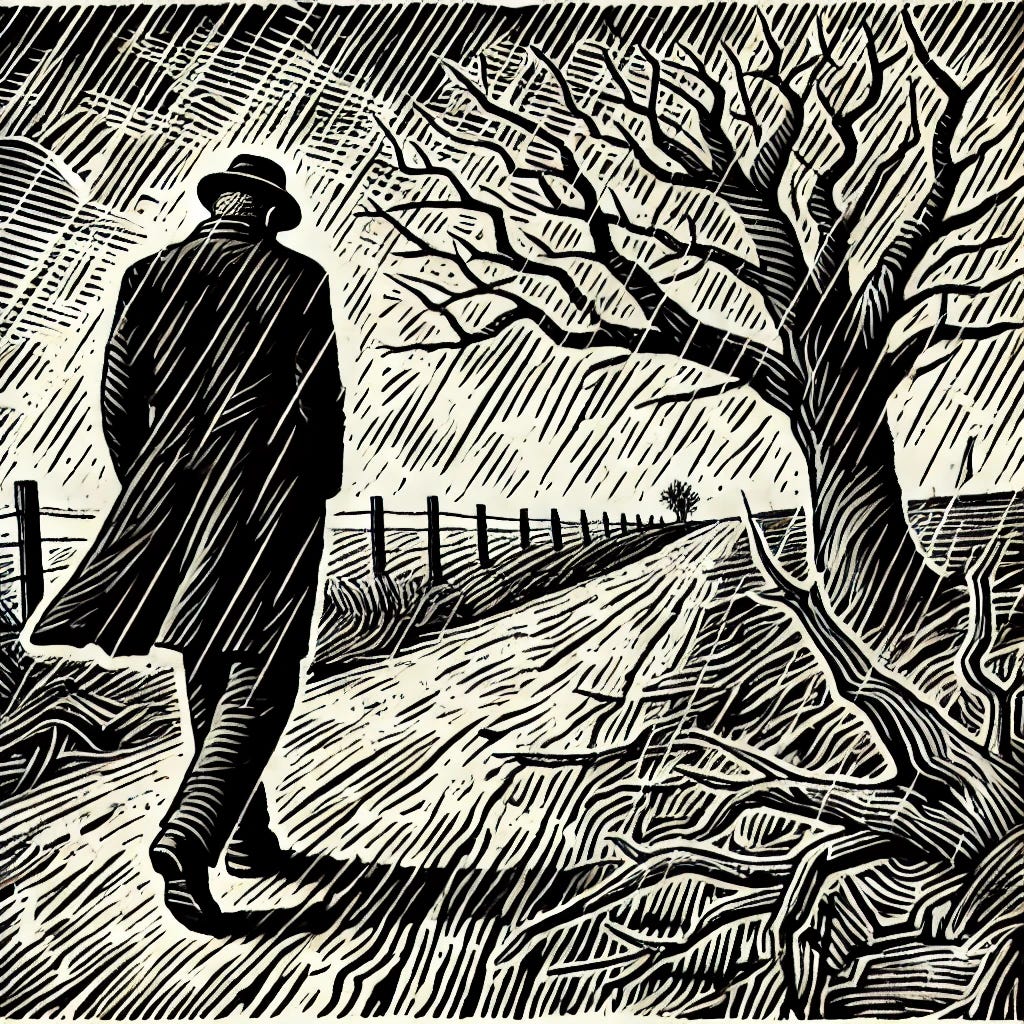The phrase "mental illness" brings up all manner of images, emotions, and opinions. It also comes with a fair amount of social stigma, even in this day of pill-pushing advertisements and a psychotherapy industry dedicated to giving everyone a diagnosis. Perhaps, in a bit of disturbing irony, the ubiquity of medications and therapy leads to a judgment of simply taking a pill or ‘just talk to someone’ and being therefore able to move on, as if the mere existence of an intervention means you either shouldn’t be worried about it anymore or at least not have to bring it up. There is a social pressure, with "solutions” being so readily available, to fatally admit that it is somehow a personal weakness where the struggle continues. To continue the journey of mental well-being is somehow an indication that you have doubly failed, both in having difficulty in the first place and now not having the intervention to solve everything.
While there is certainly criticism to be made of medications given to address mental health diagnoses, not least the continued falsity that there is some unique neurological structure that is labeled “depression” or “anxiety” which pills can rebalance to an imagined ideal, the fact remains that interventions are better seen as mitigating influences rather than attempts at a cure. Perhaps rather than a diagnosis, it would be better to consider each of us as having proclivities toward certain reaction patterns, so instead of seeing any of us as broken or needing fixing, we are individuated examples of humanity embedded in particular history and culture. This allows for greater flexibility of interventions and, admittedly, from my own bias, opens the space for considering us holistically.
Being honest about such matters is what leads me here. I walk with depression and have been for over twenty years. I use the phrase "walk with" because it's a helpful metaphor for my experience. I enjoy going for walks, and while there is a level of similarity each time I place one foot in front of the other, there is also a great deal of variation. The terrain changes depending on where I'm at, leading to changes in what is noticed and how often I stare at my feet so as not to trip. The length of time will change depending on what I'm up for, varying through the years and the level of personal fitness.
Depression is similar, shared by millions, yet unique to each person. The mental tapes of self-castigation, concern over a potential loss, being unloved, and the inevitable underlying thread of being a failure and unworthy of life (informed in no small part by my religious fundamentalist upbringing) describe what depression has been for me. Some aspects may resonate with others, but they are not the whole story.
Medication, counseling, diet changes, and various books on mental life have all been part of my journey. All of these attempts at intervention have been helpful in their way and for varying periods of time, and all have provided building blocks for where I am today.
Personal lessons found along the journey with depression
I stopped using the term "illness." I'm not sick, and the term has far too much negativity connected to it, particularly as it alludes to there being something wrong or that it needs curing. There isn't. On the spectrum of emotional expression, I simply fall more on one side than another, depending on context.
Not every intervention works the same for everyone. Whether it's medication, prayer, meditation, physical activity, etc., each will work differently because we are all composed of a unique combination of personal narratives, histories, and social supports.
Not every intervention works the same way each time. This one can be particularly frustrating, though it leads to the building up of several options for self-care. Relying on any single one repeatedly runs on the law of diminishing returns. Just as depression is complex, so is the self-care involved in meeting it.
Self-care doesn't mean an absence of social care. Certainly, there are times when a quiet room has been the only healthy way to go, but avoiding social contact entirely is counterproductive. We are inherently social creatures. While we all fall on the spectrum of how much interaction we’re comfortable with for a specific amount of time, the last thing the incessantly running tapes of self-recrimination need is for the mind to echo the isolation of an absence of social connection. Besides, loved ones do care, and it's helpful to be reminded of that.
Be careful of making causal connections. Just as interventions will shift in how helpful they are, so do triggering events shift in their ability to lead to depression. Focusing too much on one can give it a power it otherwise wouldn't or perhaps shouldn't have. This doesn't mean ignoring the personal context, only to see that connections can and often do change over time.
Fighting doesn't lead anywhere except to a bruised self. Setting depression up as a monolithic Goliath may be a particular salve to the ego. Still, eventually, the fight becomes the only thing being focused on, rather than the rest of your life. This goes for a hyper-focus on a diagnosis as well. It’s a label placed on retrospective isolation of particular experiences, not a means of describing the whole of who you are.
Let me repeat the last point. You and I are more than any diagnosis. Depression cannot characterize the whole of who you are. No single action, thought, or emotion ever can.
None of these statements are intended as universal for anyone walking with depression. They're lessons, as much a part of the journey as the depression itself has been. Each of our stories is a reflection of who we are, what we see and what we are striving to uncover. Whatever parable of the mind is being created, with its shades of light and dark, the result is always worthy of the life it is living in.
Resources:
Mindfulness & Acceptance Workbook for Depression by Kirk Strosahl





